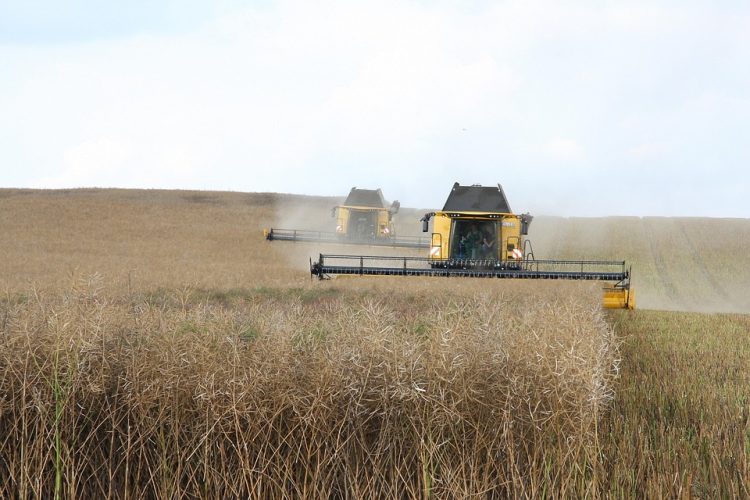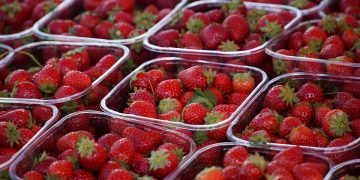In today’s world, the importance of embracing eco-friendly living has never been more crucial. With the rising concerns of climate change, pollution, and environmental degradation, it is imperative that we take action to protect our planet for future generations. One of the key ways we can contribute to a more sustainable future is by reducing our use of plastic and embracing plastic-free alternatives.
### The Problem with Plastic
Plastic has become a ubiquitous part of our daily lives, from packaging to household items to clothing. However, the convenience of plastic comes at a significant cost to the environment. Plastic pollution is a major problem worldwide, with millions of tons of plastic waste ending up in landfills, rivers, and oceans every year. This not only harms wildlife and ecosystems but also poses a threat to human health.
### The Benefits of Going Plastic-Free
By choosing plastic-free alternatives, we can significantly reduce our environmental impact and contribute to a more sustainable future. Plastic-free living has a range of benefits, including:
1. **Reducing Plastic Pollution**: By using plastic-free alternatives, we can help prevent plastic waste from ending up in landfills and polluting the environment.
2. **Protecting Wildlife**: Many animals mistake plastic for food and can suffer harm or even death from ingesting plastic waste. By going plastic-free, we can help protect wildlife and ecosystems.
3. **Improving Human Health**: Plastic contains harmful chemicals that can leach into food and water, posing a risk to human health. By choosing plastic-free alternatives, we can reduce our exposure to these harmful substances.
### Plastic-Free Alternatives
There are a wide variety of plastic-free alternatives available for everyday items, from reusable shopping bags to stainless steel water bottles to bamboo toothbrushes. By making simple switches to these eco-friendly alternatives, we can significantly reduce our plastic consumption and minimize our environmental impact.
#### 1. Reusable Shopping Bags
One of the easiest ways to reduce plastic waste is by using reusable shopping bags instead of single-use plastic bags. Reusable bags are durable, convenient, and come in a variety of styles and designs to suit your preferences.
#### 2. Stainless Steel Water Bottles
Single-use plastic water bottles are a major source of plastic waste. By switching to a stainless steel water bottle, you can reduce your plastic consumption and stay hydrated on the go.
#### 3. Bamboo Toothbrushes
Traditional plastic toothbrushes are a significant source of plastic waste. Bamboo toothbrushes are a sustainable alternative that is biodegradable and eco-friendly.
### Tips for Embracing Eco-Friendly Living
Transitioning to a plastic-free lifestyle may seem daunting at first, but with some simple tips and tricks, you can make the switch to eco-friendly living with ease.
1. **Start Small**: Begin by making small changes, such as switching to reusable shopping bags or using a bamboo toothbrush. Gradually incorporate more plastic-free alternatives into your daily routine.
2. **Do Your Research**: Take the time to research eco-friendly products and brands that align with your values. Look for certifications such as BPA-free, organic, or Fair Trade to ensure you are making sustainable choices.
3. **Get Creative**: Think outside the box and find creative ways to reduce your plastic consumption. Consider DIY projects, upcycling, or repurposing items to minimize waste.
### Common Questions About Plastic-Free Living
As you embark on your journey to embrace eco-friendly living and reduce your plastic consumption, you may have some common questions. Here are a few FAQs to help guide you along the way:
#### 1. Is it more expensive to choose plastic-free alternatives?
While some eco-friendly products may have a higher upfront cost, they are often more durable and can save you money in the long run. Additionally, by reducing your consumption of disposable items, you can cut down on your overall expenses.
#### 2. Are plastic-free alternatives as effective as their plastic counterparts?
Many plastic-free alternatives are just as effective, if not more so, than their plastic counterparts. For example, stainless steel water bottles are durable and keep beverages cold or hot for extended periods.
#### 3. How can I dispose of plastic-free items at the end of their lifespan?
Most plastic-free alternatives are biodegradable or recyclable, making them easy to dispose of in an environmentally friendly manner. Be sure to check the recycling guidelines in your area for proper disposal.
### Conclusion
Embracing eco-friendly living and reducing our use of plastic is essential for creating a more sustainable future. By choosing plastic-free alternatives, we can minimize our environmental impact, protect wildlife and ecosystems, and improve human health. With simple switches to reusable and eco-friendly products, we can all play a part in preserving our planet for future generations. Let’s make a commitment to embrace plastic-free living and work towards a more sustainable future for all.





